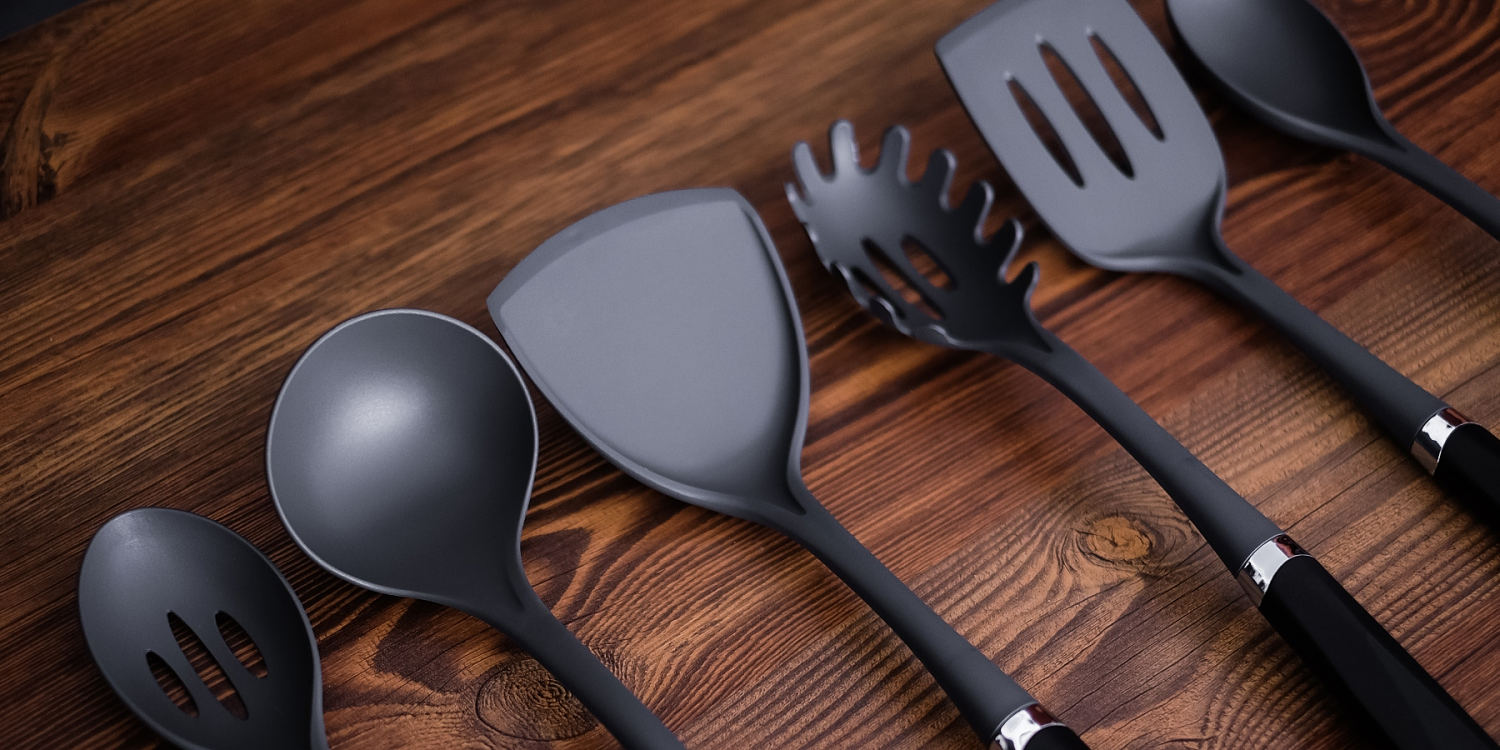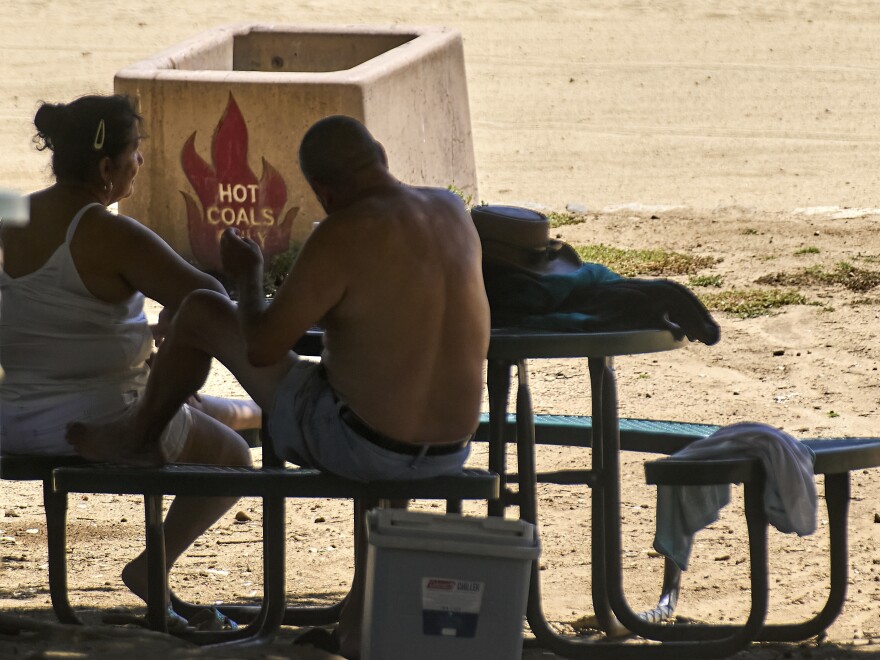We don’t always know the answers, but we have some folks on speed dial who do, so we’re presenting to you our series FYI, in which experts discuss things like whether lip balm is terrible and how often to wash your hair.
The black plastic spatula in the drawer in your kitchen? Maybe it’s time to throw it out. There has been a lot of talk lately concerning the risks associated with using black plastic cooking tools, such as spoons and spatulas. The main argument is that using black plastic to stir food in pots and pans over heat might cause toxins to be released into your meal, which you will then consume. The use of unregulated recycled plastics in these cooking utensils may be the primary issue, according to one study. As a result, you might be purchasing things that contain flame retardants, which can turn dangerous when heated.
To find out if these allegations are true and to assist you in deciding whether to throw away your black plastic cutlery, we spoke with specialists in the fields of environmentalism and food science. Continue reading to learn more about the specific risks associated with black plastic, what substitute materials might be safer, and some suggestions for safer cooking utensils.
Ignore AHEIs it truly harmful to use black plastic cooking utensils?|What may be used in its place?|Safe cooking utensils
Related
Everything you need to properly season, clean and maintain a cast iron skillet
Is it really bad to cook with black plastic utensils?
Experts we spoke with suggest that while many have been quick to condemn cooking with black plastic, the issue isn’t that simple and that it depends on the kind of plastic used. According to Dr. Li Li, an assistant professor at the University of Nevada Reno who specializes in environmental chemistry, industrial ecology, exposure, and health sciences, plastic cooking utensils, such as those made of polypropylene, or PP, are generally regarded as safe due to their durability and ability to withstand high heat. However, some plastic utensils may be created from recycled plastics, and some of these plastics may originate from electronics or other devices that were not designed with food consumption in mind.
Recycled plastic has the potential to cause issues. This is because they can include dangerous ingredients that aren’t meant to be consumed with meals. According to Li, flame retardants like polybrominated diphenyl ethers (PBDEs) are one example of that. Non-food-contacting polymers are treated with these compounds to keep them from burning at high temperatures. However, they cannot be eliminated during the recycling process, so if the recycled material is used to make cooking utensils, they will show up.
Numerous health issues have been connected to these PBDEs. According to Dr. Susan Harlander, vice president of technology at Ra Foods and a food science and nutrition doctorate holder, these chemicals can leak into food when heated, possibly altering hormones and posing long-term health risks like endocrine disruption or an elevated risk of cancer. According to Harlander, black plastic might have negative effects on the environment in addition to health. According to her, it is frequently not recyclable since recycling plants find it difficult to sort using infrared technology, which increases landfill trash. Furthermore, black plastic can emit persistent organic pollutants during production and disposal, endangering wildlife and ecosystems.
How to use black plastic utensils safely
If you don t want to give up your black plastic utensils after all, they re some of the most affordable there are things you can do to mitigate their risk. The easiest thing would be to avoid using anything made from recycled plastic. Unfortunately, most utensils aren t labeled with the type of plastic used. With that in mind, it is possible to lower the risk factors even if your ones are made from recycled materials. You want to minimize the chances of harmful chemicals leaching from them, says Li. Three primary factors increase the likelihood of leaching: high temperatures, which cause molecules to move more actively and increase the likelihood that chemicals will migrate out of plastic; prolonged cooking, which increases the amount of time that chemicals have to leach; and oily environments, because many toxic substances are lipophilic, which means they dissolve more readily in fats or oils.
What to cook with instead of black plastic
Don t want to take the risk? There are numerous alternatives to black plastic cooking utensils, says Harlander. Here a list of materials that both our experts recommend to those trying to avoid black plastic:
-
Wood or bamboo:
They are natural, non-toxic, biodegradable and suitable for non-stick cookware, says Harlander. One thing to remember: Wood is more porous, so it requires careful cleaning to prevent bacterial growth. -
Food-grade stainless steel:
Harlander says this material is durable, heat-resistant and recyclable. Just know that stainless steel utensils cannot be used on non-stick pans, as they can scratch the surface and remove the protective coating. -
Silicone:
Food-grade silicone is heat-resistant and safe for non-stick surfaces, making this material a good option for those who like to cook on high heat or use non-stick pans.
Safe cooking utensils
If you want to ditch black plastic, here are a few cooking utensils made from the other materials our experts recommended. All options below are highly rated, with at least a 4-star average rating from hundreds of reviews.
Our Place Cooking Utensils
Our Place Cooking Utensils
Our Place makes some of our favorite kitchen appliances like theirDream PotandWonder Oven. This set of utensils is made from food-grade silicone and includes a ladle, spatula, whisk, slotted turner, tongs and a basting brush. The handles are ergonomic and dishwasher-safe.
Caraway Utensil Set
Caraway Utensil Set
I was a devoted black plastic utensil user until my husband and I bought our house in 2020 and he demanded we switch to wood. He d grown up in a home that only used wood cooking tools and insisted it was better. Though I was initially skeptical, this set from Caraway won me over with its sleek look and effectiveness. The 5-piece set includes tongs, a spatula, a spoon and more all made from birch wood. They are great for non-stick pan devotees, as they won t scratch off that coating. These utensils cannot be placed in a dishwasher and should only be hand-washed.
Great Jones
Great Jones
This 5-piece set is made with silicone and, dare we say, incredibly cute and stylish. The brand says that lollipops inspired the design and that the tools are durable for everyday use.
Berglander Cooking Utensil Set
Berglander Cooking Utensil Set
This 8-piece set comes with seven utensils and a holder for those tools. Everything is made from high-grade stainless steel, which works well on stainless steel pots and pans but should not be used on non-stick cookware. The tools can be placed in the dishwasher and the set has a 4.6-star average rating from over 4,050 reviews on Amazon.
Zulay Kitchen 6-Piece Wooden Spoons
Zulay Kitchen 6-Piece Wooden Spoons
Made from teak, this set comes with a salad spoon and fork, spatula, turner, skimmer and serving spoon. The utensils are close-grained so that they won t absorb liquids you are cooking and they should only be hand washed with a bit of soap and water, according to the brand. This set has a 4.6-star average rating from over 4,300 reviews on Amazon.
Umite Silicone Cooking Utensil Set
Umite Silicone Cooking Utensil Set
Everything you could need is included in this 8-piece set such as a serving spoon, ladle, angled spatula, whisk and more. The top of the utensils are made from food-grade silicone that can withstand temperatures up to 446 F. The handles are made from Acacia wood. The first time you use them, they should be soaked in water and air-dried for three hours to get rid of the smell of the silicone. The set has a 4.5-star average rating from 3,989 reviews on Amazon.
Meet our experts
At NBC Select, we work with experts with specialized knowledge and authority based on relevant training and experience. We also ensure all expert advice and recommendations are made independently and without undisclosed financial conflicts of interest.
-
Dr. Li Li
is an assistant professor at the University of Nevada Reno who specializes in environmental chemistry, industrial ecology and exposure and health sciences.
-
Dr. Susan Harlander
has a doctorate in food science and nutrition and is the vice president of technology at Ra Foods.
Why trust NBC Select?
Bethany Heitman is a contributor at NBC Select and a journalist who regularly covers beauty, home and lifestyle. For this story, she interviewed experts on the dangers of cooking with black plastic.
Catch up on NBC Select s in-depth coverage ofpersonal finance,tech and tools,wellnessand more, and follow us onFacebook,Instagram,TwitterandTikTokto stay up to date.
Note: Every piece of content is rigorously reviewed by our team of experienced writers and editors to ensure its accuracy. Our writers use credible sources and adhere to strict fact-checking protocols to verify all claims and data before publication. If an error is identified, we promptly correct it and strive for transparency in all updates, feel free to reach out to us via email. We appreciate your trust and support!






